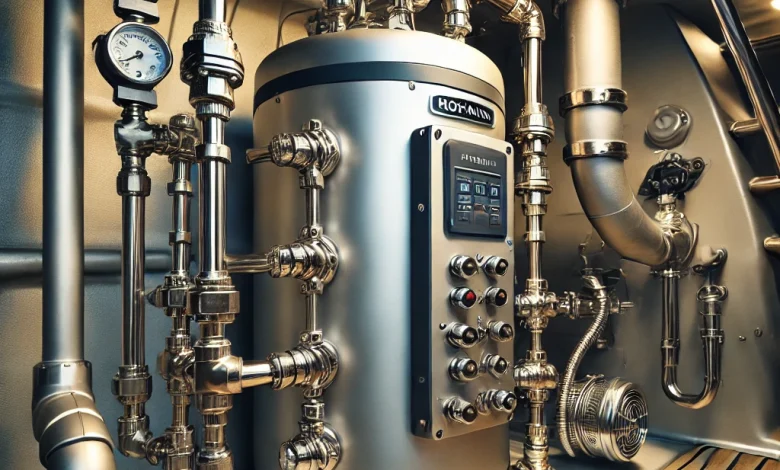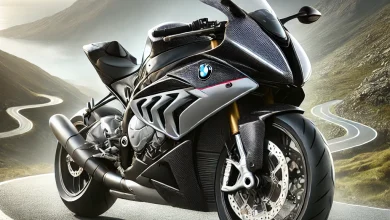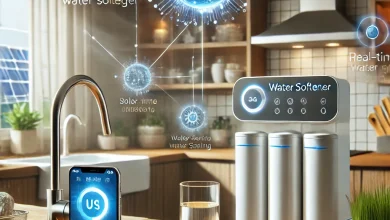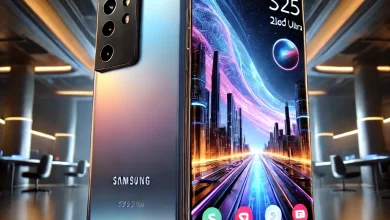Marine Water Heater: 10 Things You Need to Know for Efficient Hot Water on Boats

Table of Contents
Introduction
Hot water is an essential commodity on boats and yachts, enhancing comfort and convenience during marine adventures. A marine water heater ensures a consistent supply of hot water for various needs, including showers, dishwashing, and cleaning. Unlike household water heaters, marine water heaters are specifically designed to withstand the challenging conditions of a marine environment, including constant motion, corrosion, and limited space. This article explores everything you need to know about marine water heaters, their types, features, installation, maintenance, and top brands to help you make an informed decision.
What is a Marine Water Heater?
A marine water heater is a specialized device designed to heat water on boats and yachts. It functions similarly to a household water heater but is built to operate efficiently in marine conditions. These heaters use electricity, engine heat, or a hybrid combination of both to provide hot water.
Differences from Regular Water Heaters
- Compact Design: Designed to fit in limited onboard spaces.
- Corrosion Resistance: Made from materials like stainless steel or aluminum to withstand marine environments.
- Alternative Power Sources: Can utilize engine heat in addition to electricity.
- Marine-Grade Safety Features: Equipped with specialized safety mechanisms for boats.
Types of Marine Water Heaters
Electric Marine Water Heaters
- Powered by shore power or onboard generators.
- Ideal for boats with reliable electrical systems.
- Typically range from 6 to 20 gallons in capacity.
- Require efficient insulation to retain heat.
- Some high-end models come with quick-heating elements for instant hot water.
Engine Heat Exchanger Water Heaters
- Utilize the engine’s cooling system to heat water.
- Energy-efficient since they use existing engine heat.
- Provide hot water while the engine is running.
- Great for long-distance cruising vessels.
- Typically have an internal coil heat exchanger to transfer heat efficiently.
Hybrid Marine Water Heaters
- Combine electric heating with an engine heat exchanger.
- Offer flexibility and continuous hot water supply.
- Ideal for various marine applications.
- Reduce dependence on external power sources.
- Provide uninterrupted hot water even when docked or underway.
Key Features to Consider When Buying a Marine Water Heater
1. Capacity
- Measured in gallons or liters.
- Choose based on boat size and hot water demand.
- Typical sizes range from 6 to 20 gallons.
- Larger vessels may require multiple water heaters for optimal performance.
2. Power Source
- Electric, engine heat, or hybrid options.
- Consider energy availability on your boat.
- Some models support dual-voltage operation (AC/DC compatibility).
- Ensure compatibility with onboard power generation capacity.
3. Material
- Stainless Steel: Corrosion-resistant, durable.
- Aluminum: Lightweight but less durable.
- Plastic: Less common but can be cost-effective.
- Titanium Elements: Found in premium models, offer superior durability and resistance to corrosion.
4. Energy Efficiency & Insulation
- Look for high-quality insulation to retain heat longer.
- Some models have advanced insulation to minimize energy loss.
- Thicker insulation reduces standby heat loss, saving power and fuel.
- Advanced models may have vacuum-insulated tanks for superior heat retention.
5. Safety Features
- Pressure Relief Valve: Prevents pressure build-up.
- Thermostats: Ensures water doesn’t overheat.
- Non-corrosive Tanks: Extends lifespan and prevents leaks.
- Automatic Shut-Off: Prevents overheating and electrical hazards.
- Fail-Safe Mechanisms: Additional protection against system failures.
Installation and Maintenance
Step-by-Step Installation Guide
- Choose a Suitable Location: Secure a well-ventilated area near plumbing connections.
- Mount the Heater: Fix it firmly to prevent movement during navigation.
- Connect Water Lines: Attach the inlet and outlet pipes securely.
- Connect to Power Source: Wire to shore power, generator, or engine heat exchanger.
- Test for Leaks: Fill the tank and check for leaks before use.
- Insulate Pipes: Enhances heat retention and efficiency.
- Secure Connections: Use marine-grade clamps and fittings to prevent leaks.
- Ensure Proper Ventilation: Avoid overheating and improve system longevity.
Maintenance Tips
- Flush Regularly: Remove sediment build-up to prevent clogging.
- Check for Leaks: Inspect fittings and seals periodically.
- Inspect Anode Rod: Prevents tank corrosion.
- Test Safety Valves: Ensure pressure relief functionality.
- Monitor Electrical Components: Check wiring and connections periodically.
- Descale the Heating Element: Prevents efficiency loss due to mineral buildup.
Troubleshooting Common Issues
- No Hot Water: Check power supply and thermostat settings.
- Water Leaks: Inspect hoses, seals, and fittings.
- Inefficient Heating: Clean heating elements or check insulation.
- Strange Odors: Could indicate bacterial buildup; flush with a vinegar solution.
- Rust-Colored Water: Sign of internal corrosion; inspect anode rod and tank lining.
Top Brands and Models
Isotemp Marine Water Heaters
- High-quality stainless steel construction.
- Excellent insulation for heat retention.
- Models available in various capacities.
- Designed to withstand harsh marine conditions.
Kuuma Marine Water Heaters
- Durable and reliable models.
- Options for electric and engine heat exchanger models.
- Marine-grade safety features.
- Available in multiple tank sizes and power ratings.
Seaward Marine Water Heaters
- Known for high efficiency.
- Various sizes and power configurations.
- Easy installation and maintenance.
- High-grade insulation for prolonged heat retention.
Whale Marine Water Heaters
- Compact and lightweight design.
- Designed for small to medium-sized boats.
- Great thermal efficiency.
- Offers advanced safety mechanisms and efficient heat retention.
Benefits of Using a Marine Water Heater
Comfort and Convenience
A marine water heater plays a vital role in enhancing the overall comfort and convenience of life onboard, making it an essential feature for both short trips and long-term cruising. Having access to hot water significantly improves the quality of life on a boat, allowing for warm showers, efficient dishwashing, and easier cleaning, all of which contribute to a more enjoyable and stress-free boating experience.
For boaters embarking on extended voyages or living aboard full-time, a reliable hot water system becomes even more crucial. It eliminates the need to rely on marinas or shore-based facilities for basic hygiene and sanitation needs. Instead of enduring cold showers or resorting to alternative heating methods, boaters can enjoy the same level of comfort as they would at home, regardless of their location on the water.
Energy Efficiency and Sustainability
Energy efficiency is a key consideration when selecting a marine water heater, as it directly impacts power consumption and sustainability. Many modern models incorporate hybrid technology, allowing them to optimize energy use by combining multiple heating sources. These hybrid systems intelligently switch between electricity, engine heat, and alternative power sources to reduce overall energy consumption.
Engine heat exchanger models are particularly efficient, as they utilize waste heat generated by the boat’s engine to warm water, minimizing the need for additional electricity or fuel. This method ensures that no extra energy is wasted, making it an environmentally friendly solution for boaters looking to reduce their carbon footprint.
Additionally, advanced insulation technology plays a crucial role in enhancing energy efficiency. High-end marine water heaters feature well-insulated tanks that significantly reduce heat loss, maintaining water temperature for extended periods without constant reheating. This insulation not only conserves energy but also extends the heater’s lifespan by reducing strain on its heating elements.
To further improve efficiency, some modern marine water heaters come equipped with smart thermostats that enable precise temperature control. These thermostats help regulate power usage by adjusting heating cycles based on demand, ensuring that energy is not wasted on unnecessary heating. By integrating these innovative features, boaters can enjoy a reliable hot water supply while reducing fuel or electricity costs, making their vessel more eco-friendly and cost-effective in the long run.
Increased Resale Value of the Boat
A well-maintained and fully functional marine water heater can significantly enhance the resale value of a boat, making it a more attractive option for potential buyers. Many boaters prioritize comfort and convenience when purchasing a vessel, and having a reliable hot water system adds to the overall appeal.
For those considering selling their boat in the future, installing or upgrading a high-quality marine water heater can serve as a valuable selling point. It demonstrates that the vessel is well-equipped for long-distance cruising, extended stays onboard, and liveaboard lifestyles. Buyers looking for a comfortable and self-sufficient boat are more likely to be drawn to a vessel that already has a dependable hot water system in place.
Beyond basic comfort, a marine water heater contributes to the boat’s overall functionality and luxury. Features such as energy-efficient heating, corrosion-resistant tanks, and hybrid power options indicate that the boat has been well-maintained and thoughtfully upgraded. This perception can justify a higher asking price and attract serious buyers who are willing to invest in a well-equipped vessel.
In addition, having a marine water heater can expand the market for potential buyers, as it makes the boat more appealing for liveaboard enthusiasts, long-range cruisers, and charter operators who require a dependable hot water supply. Ultimately, investing in a quality marine water heater not only improves the onboard experience but also boosts the boat’s long-term value, ensuring a higher return on investment when it comes time to sell.
Versatile Power Options
Marine water heaters are designed to operate using multiple power sources, making them highly adaptable for various boating needs. They typically work with onboard power systems, utilizing AC or DC electricity, depending on the vessel’s setup. Additionally, many models harness engine heat through heat exchangers, efficiently utilizing waste energy to warm the water without consuming extra fuel.
For eco-conscious boaters, some advanced marine water heaters offer integration with solar panels. This renewable energy option reduces reliance on fossil fuels, lowers operational costs, and minimizes environmental impact. Hybrid models combine electrical heating elements with solar power and engine heat, ensuring continuous access to hot water even in remote locations. The dual-source compatibility provides uninterrupted functionality, whether the boat is docked at a marina or sailing offshore, enhancing convenience and energy efficiency.
Prolonged Equipment Lifespan
Proper care and maintenance significantly extend the lifespan of marine water heaters, preventing issues such as corrosion, scaling, and sediment buildup. Routine inspections, flushing, and descaling help maintain optimal performance and efficiency. High-quality models are constructed with corrosion-resistant stainless steel or glass-lined tanks, which provide superior durability and resistance to harsh marine conditions, including exposure to saltwater and humidity.
To further prolong longevity, some modern systems incorporate self-cleaning mechanisms that prevent mineral and sediment accumulation, reducing the need for frequent manual maintenance. Anode rods, commonly used in marine water heaters, protect the inner tank from corrosion by attracting corrosive elements, thereby prolonging the heater’s service life. Investing in a high-end model with these protective features ensures long-term reliability, minimizes repair costs, and enhances overall onboard comfort by providing a consistent supply of hot water.
Conclusion
A marine water heater is an essential addition to any boat or yacht, significantly enhancing onboard comfort, convenience, and self-sufficiency. Whether you’re enjoying a short sailing trip or living aboard full-time, having access to hot water for showers, dishwashing, and cleaning makes life on the water much more enjoyable.
Choosing the right marine water heater requires careful consideration of various factors, including capacity, power source, energy efficiency, material durability, and safety features. Electric, engine heat exchanger, and hybrid models each offer distinct advantages, depending on your vessel’s power availability and usage needs. Advanced features like smart thermostats, corrosion-resistant tanks, and self-cleaning mechanisms further enhance the performance and lifespan of these systems.
Proper installation and regular maintenance ensure the longevity and reliability of a marine water heater. By routinely inspecting key components, flushing the tank, and checking safety mechanisms, boaters can prevent common issues such as sediment buildup, leaks, and corrosion.
Additionally, a well-maintained water heating system contributes to a higher resale value of the boat, making it more appealing to potential buyers. The combination of enhanced onboard comfort, improved energy efficiency, and increased vessel value makes investing in a high-quality marine water heater a smart choice for any boat owner.
With a wide range of trusted brands and models available, selecting the best marine water heater ultimately depends on your specific needs and budget. Whether you’re looking for a compact unit for a small boat or a high-capacity hybrid system for long-distance cruising, the right marine water heater can greatly improve your boating experience.
Frequently Asked Questions (FAQs)
1. Why do I need a marine water heater instead of a regular household water heater?
Marine water heaters are specifically designed to withstand the harsh conditions of a marine environment, including constant movement, limited space, and exposure to corrosive saltwater. They also offer alternative power sources, such as engine heat exchangers, making them more efficient for boating applications.
2. What is the best power source for a marine water heater?
The best power source depends on your boat’s setup and energy availability. Electric models are ideal for boats with reliable shore power or onboard generators, while engine heat exchanger models are energy-efficient and utilize waste engine heat. Hybrid models combine both sources for maximum flexibility and continuous hot water supply.
3. How long does it take for a marine water heater to heat water?
Heating times vary based on the model and power source. Electric models typically take 30–60 minutes to fully heat the water, while engine heat exchanger models can provide hot water almost instantly while the engine is running. High-end hybrid models with quick-heating elements may offer even faster heating times.
4. What size marine water heater should I get for my boat?
The ideal size depends on your hot water needs and available space. Smaller boats typically use 6- to 10-gallon tanks, while larger vessels may require 12- to 20-gallon units or multiple heaters for optimal performance. Consider the number of passengers and your intended usage (e.g., showers, dishwashing, etc.) when selecting the capacity.
5. How can I make my marine water heater more energy efficient?
To maximize energy efficiency:
- Choose a model with high-quality insulation to retain heat longer.
- Consider a hybrid system that uses both electricity and engine heat.
- Install solar panels if your water heater supports renewable energy integration.
- Use a smart thermostat to regulate power usage.
6. How often should I maintain my marine water heater?
Regular maintenance is crucial for longevity and efficiency. Key maintenance tasks include:
- Flushing the tank every 3–6 months to remove sediment buildup.
- Inspecting the anode rod annually and replacing it if necessary.
- Checking for leaks, corrosion, and worn-out seals periodically.
- Descaling the heating element if mineral buildup is present.
7. What are common issues with marine water heaters, and how can I fix them?
- No hot water: Check the power supply, thermostat settings, and heating element.
- Water leaks: Inspect hoses, fittings, and tank seals for cracks or loose connections.
- Inefficient heating: Clean or replace the heating element and check for insulation damage.
- Rust-colored water: Replace the anode rod and inspect the tank for corrosion.
- Unusual odors: Flush the tank with a vinegar solution to remove bacteria buildup.
8. Can I install a marine water heater myself, or do I need professional help?
While some experienced boaters can handle installation, professional installation is recommended for safety and compliance with marine electrical and plumbing standards. If you choose to install it yourself, follow the manufacturer’s guidelines carefully, ensuring proper wiring, secure mounting, and leak-proof connections.
9. Are marine water heaters safe to use?
Yes, marine water heaters are designed with multiple safety features, including pressure relief valves, thermostats, automatic shut-off mechanisms, and non-corrosive tanks. However, regular maintenance and inspections are necessary to ensure continued safe operation.
10. Which brands offer the best marine water heaters?
Some of the top brands in the market include:
- Isotemp: Known for premium stainless steel construction and excellent insulation.
- Kuuma: Durable models available in electric and engine heat exchanger options.
- Seaward: High-efficiency heaters with easy installation and maintenance.
- Whale Marine: Compact and lightweight options with advanced thermal efficiency.
You May Also Read
Lakers vs Denver Nuggets Match Player Stats



